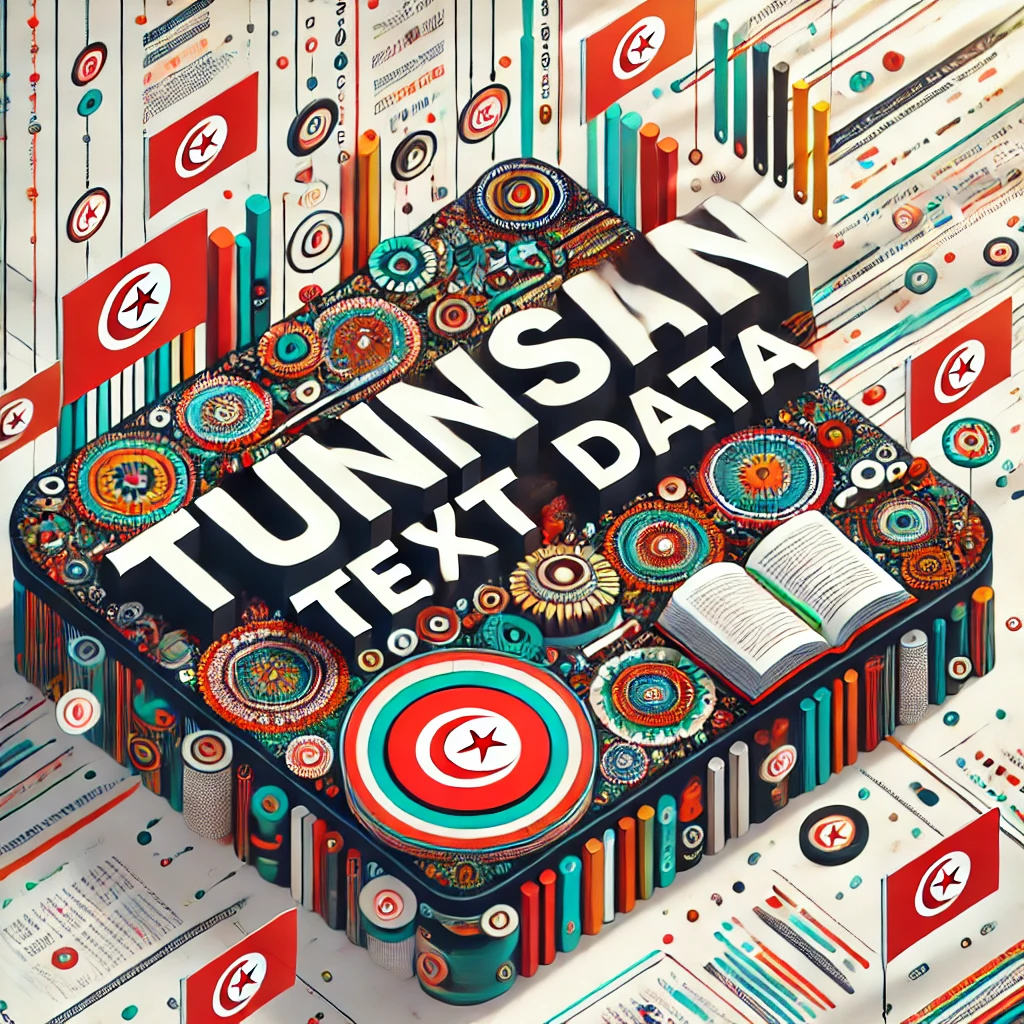Datasets:
license: cc-by-4.0
task_categories:
- text-generation
language:
- ar
- fr
- en
pretty_name: Tunisian Text Data, TTD
size_categories:
- 100K<n<1M
Dataset Card for Tunisian Text Compilation
This dataset is a curated compilation of various Tunisian datasets, aimed at gathering as much Tunisian text data as possible in one place. It combines multiple sources of Tunisian language data, providing a rich resource for research, development of NLP models, and linguistic studies on Tunisian text.
Dataset Details
Dataset Description
This dataset aggregates several publicly available datasets that contain Tunisian text, creating a comprehensive repository of Tunisian language data. It includes data from diverse domains and text types, such as social media, news, literature, and more. The dataset is particularly useful for training and fine-tuning natural language processing models specific to Tunisian Arabic and other local dialects.
The combined dataset brings together resources with varying licenses, including Apache 2.0, Creative Commons Attribution-ShareAlike 4.0 (CC BY-SA 4.0), and Creative Commons CC0. The dataset is licensed under CC BY-SA 4.0, in compliance with the most restrictive license terms of its components.
- Curated by: Mohamed Aziz Belaweid.
- Funded by [optional]: Mohamed Aziz Belaweid.
- Shared by [optional]: Mohamed Aziz Belaweid.
- Language(s) (NLP): Tunisian Arabic, possibly including other regional dialects and Modern Standard Arabic, French and English.
License Information for Combined Dataset
The following datasets have been used to create the combined dataset, each under the licenses specified:
-
- License: Apache 2.0
-
- License: Apache 2.0
Combined Dataset License
Since this dataset includes data licensed under CC BY-SA 4.0, it must be distributed under the same license to comply with the "share-alike" requirement. Therefore, the combined dataset is licensed under:
Uses
Direct Use
The Tunisian Text Compilation dataset is intended for use in various natural language processing (NLP) tasks, particularly those related to Tunisian Arabic and regional dialects. Direct uses include:
- Language modeling: Building and fine-tuning NLP models for Tunisian Arabic.
- Linguistic research: Studying the unique features and characteristics of Tunisian Arabic and its variants.
Out-of-Scope Use
The dataset is not suitable for tasks that require data from non-Tunisian dialects or languages. Additionally, potential out-of-scope and malicious uses include:
- Creating harmful or misleading content using NLP models trained on this dataset.
- Generating content unrelated to Tunisian Arabic due to limitations in dialect representation.
- Misrepresentation of findings or biased generalization, since the dataset focuses on Tunisian Arabic and may not represent all forms of Arabic.
Dataset Structure
The dataset is structured in the following way:
- Fields: The dataset contains fields for the text content, metadata such as source, language detection tags (using Lingua library), and any preprocessing applied (e.g., MinHash for deduplication).
- Splits: No splits.
- Relationships between data points: Certain data points may be linked by origin (e.g., from the same source dataset), but overall, the dataset aims to provide independent examples for NLP tasks.
Dataset Creation
Curation Rationale
The dataset was created to address the lack of comprehensive Tunisian Arabic corpora. It combines multiple datasets to gather diverse text data, representing different domains and sources. The main goal is to provide a resource that facilitates the development of NLP models specifically tailored to Tunisian Arabic, which is underrepresented in current NLP research.
Source Data
Data Collection and Processing
The source data includes a variety of Tunisian text from public datasets. The following steps were involved in the curation process:
- Data selection criteria: Publicly available datasets with a focus on Tunisian Arabic text or text that includes significant Tunisian content were selected.
- Filtering and normalization: Text data was cleaned and normalized to remove non-Tunisian content, and MinHash deduplication was used to eliminate duplicate entries.
- Language detection: The Lingua library was used to ensure accurate language detection, with a focus on filtering out non-Tunisian texts.
Who are the source data producers?
The source data producers include researchers and developers who have contributed publicly available datasets such as Muennighoff/xP3x, cis-lmu/glotcc-v1, facebook/flores, and others, each contributing different types of Tunisian text (news, literature, social media).
Bias, Risks, and Limitations
While this dataset is comprehensive for Tunisian text data, certain limitations exist:
- Bias toward specific domains: Some sources, like social media, may be overrepresented, potentially skewing the language model's understanding of Tunisian Arabic.
- Dialectal variation: Tunisian Arabic itself includes a variety of dialects, and this dataset may not capture all of them equally.
- Potential overfitting to specific text types: The prevalence of specific genres (e.g., news or social media) might affect model performance in other contexts.
Recommendations
Users of this dataset should:
- Be cautious about generalizing findings to all forms of Arabic, as this dataset is focused specifically on Tunisian dialects.
- Consider augmenting the dataset with other sources to balance dialects and avoid bias toward specific text types.
- Regularly evaluate models for potential biases introduced by the dataset's structure or content.
Citation [optional]
Please use the following citation to credit the dataset:
@misc{TunisianTextCompilation, author = {Mohamed Aziz Belaweid}, title = {Tunisian Text Compilation}, year = {2024}, url = {https://huggingface.co./datasets/AzizBelaweid/Tunisian_Language_Dataset}, }
Dataset Card Contact
For questions reach out to me :)
